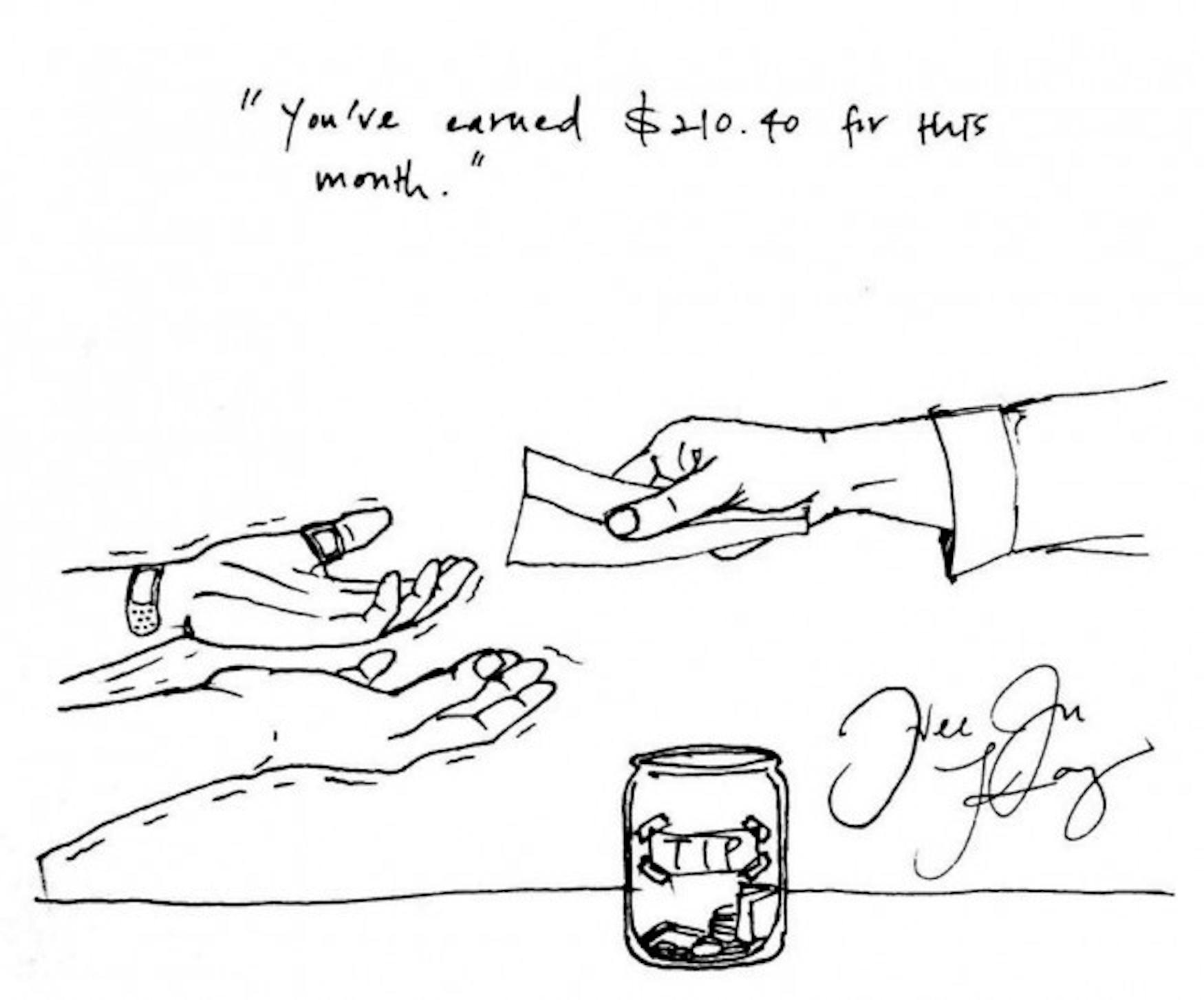Tipped workers are deprived of adequate living wage
During times of economic downturn with unemployment numbers that are far too high, low income and minimum wage workers are often left behind to struggle with barely livable wages and the ever-rising costs of living.
The legislature in my home state of California recently voted to raise the minimum wage from eight dollars an hour to 10 dollars an hour by 2016 and Gov. Jerry Brown is expected to sign the bill into law. The state of Massachusetts is considering a similar bill, which would raise the state minimum wage by three dollars within the next two years and require that the minimum wage be tied to inflation rates. I support both of these bills, because I believe the federal minimum wage is not an adequate living wage.
The current federal minimum wage in the United States is $7.25. A person working a minimum wage full time, or 40 hours a week and 52 weeks per year, will only make $15,080 a year. While an individual who makes this amount and lives alone is technically above the Department of Health and Human Service's poverty line of $11,490, it is hard to argue that they are having an easy time making ends meet. An individual working a minimum wage job full-time is eligible for some Supplemental Nutrition Assistance Program benefits, certain subsidized housing benefits and healthcare through the Affordable Care Act.
But there is a federally mandated wage below the minimum wage, and it is perfectly legal. Any employee who collects tips, like a waiter, bartender, or coat check attendant, can legally be paid $2.13 an hour, as long as they receive $30 or more in tips a month. Assuming that a tipped employee who lives alone works full time at minimum wage and receives $30 in tips per month, they will earn only $4,790.40 a year. That is far below the federal poverty line of $11,490 for an individual living alone. The minimum wage for tipped workers has not been raised in 22 years or adjusted for inflation. It is currently just under 30 percent of the regular minimum wage.
And tipped workers are in even more danger of losing their main source of income: their tips. Peter Wells, a restaurant critic for the New York Times, wrote an article in the Sept, 3 issue decrying the practice of tipping, calling it an outdated social concept that is inefficient and does nothing to improve service.
While Mr. Wells does suggest getting rid of tips in favor of a surcharge or other solutions, his article ignores the heart of the matter:waiters, bartenders, servers, and countless other people in the service industry depend on tips to get a somewhat living wage. This is a trend at the New York Times it seems. Since 2008, writers for the magazine, opinion and style section have penned articles and op-eds that are critical of tipping waiters, baristas and bartenders.
Hopefully, most people, myself included, continue to engage in the practice of tipping, and hopefully most tipped workers do draw more than a dollar in tips a day per month. In some states, they don't even have to worry about how much they make in tips. Seven states-Alaska, California, Minnesota, Montana, Nevada, Oregon and Washington-have laws in place that require tipped workers to be paid significantly above the federal tipped worker minimum wage, regardless of the tips they receive. Minimum wage workers in these states, regardless of if they are tipped or not, are able to make a living wage. After all, nobody should have to worry about paying for housing, healthcare or food.
But seven states are not enough and Massachusetts is not one of them. In Massachusetts, a tipped worker is defined as an employee who makes more than $20 a month in tips. Their minimum wage? $2.63 per hour, a staggering 20 cents over the national rate. Under the proposed law, that wage would more than double, to $6.30 an hour. The regular minimum wage would be $11 an hour. While the tipped minimum wage is more than 50 percent of the regular minimum wage and a significant jump compared to the national rates, it is still lower than current national minimum wages.
The issue of increasing the minimum wage is a complicated one, made only more difficult in our current economic times. However, with tipping going out of vogue and the cost of living in the United States always rising, it is important that minimum wage and tipped minimum wage workers are able to afford more than just the necessities for survival.
We at Brandeis should be concerned about this issue. Many entry-level positions available to college students and recent graduates are minimum wage jobs or tipped minimum wage jobs. Even if we aren't aware of it, the debate over minimum and tipped minimum wage increases affects us all.
*




Please note All comments are eligible for publication in The Justice.